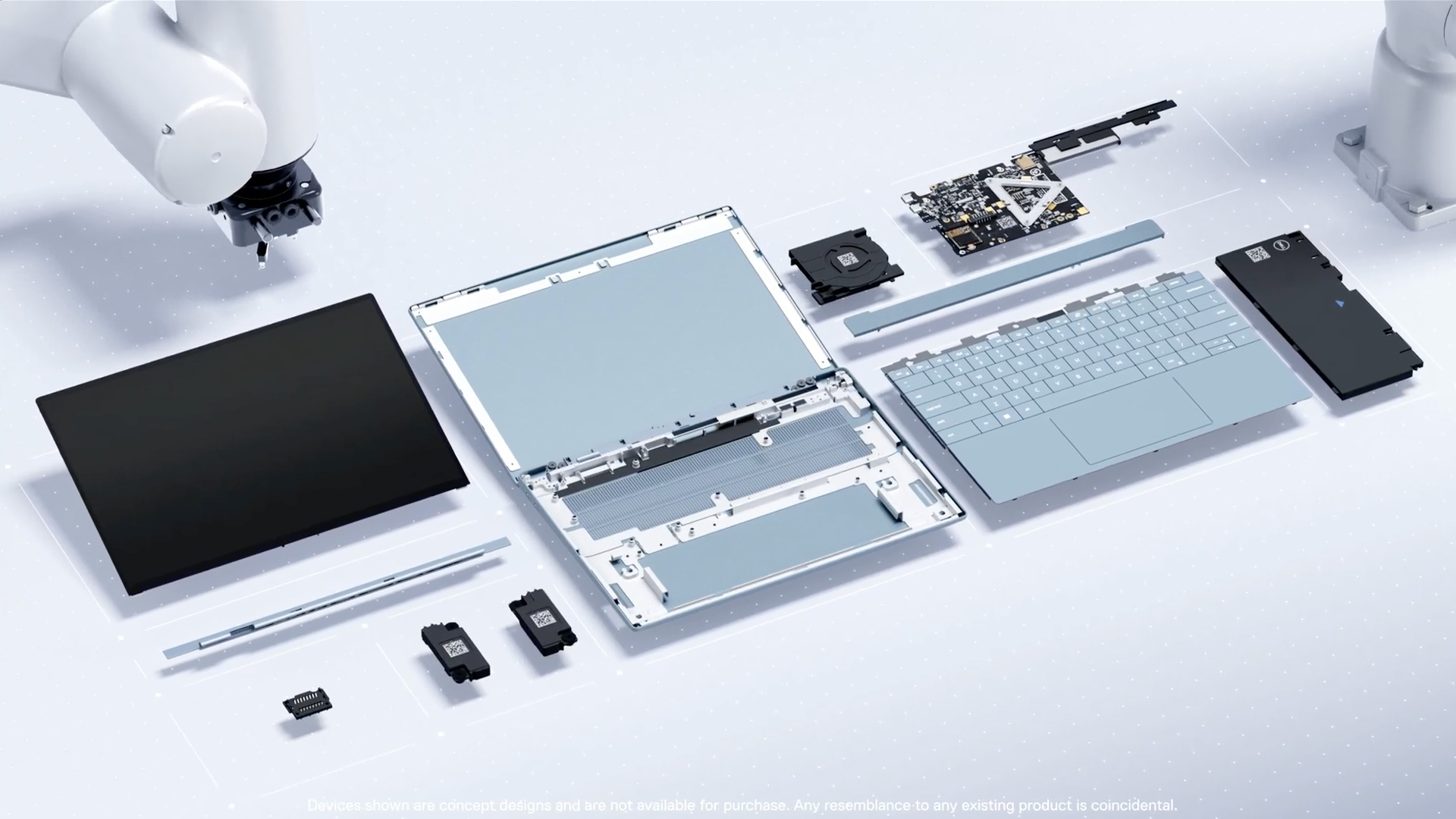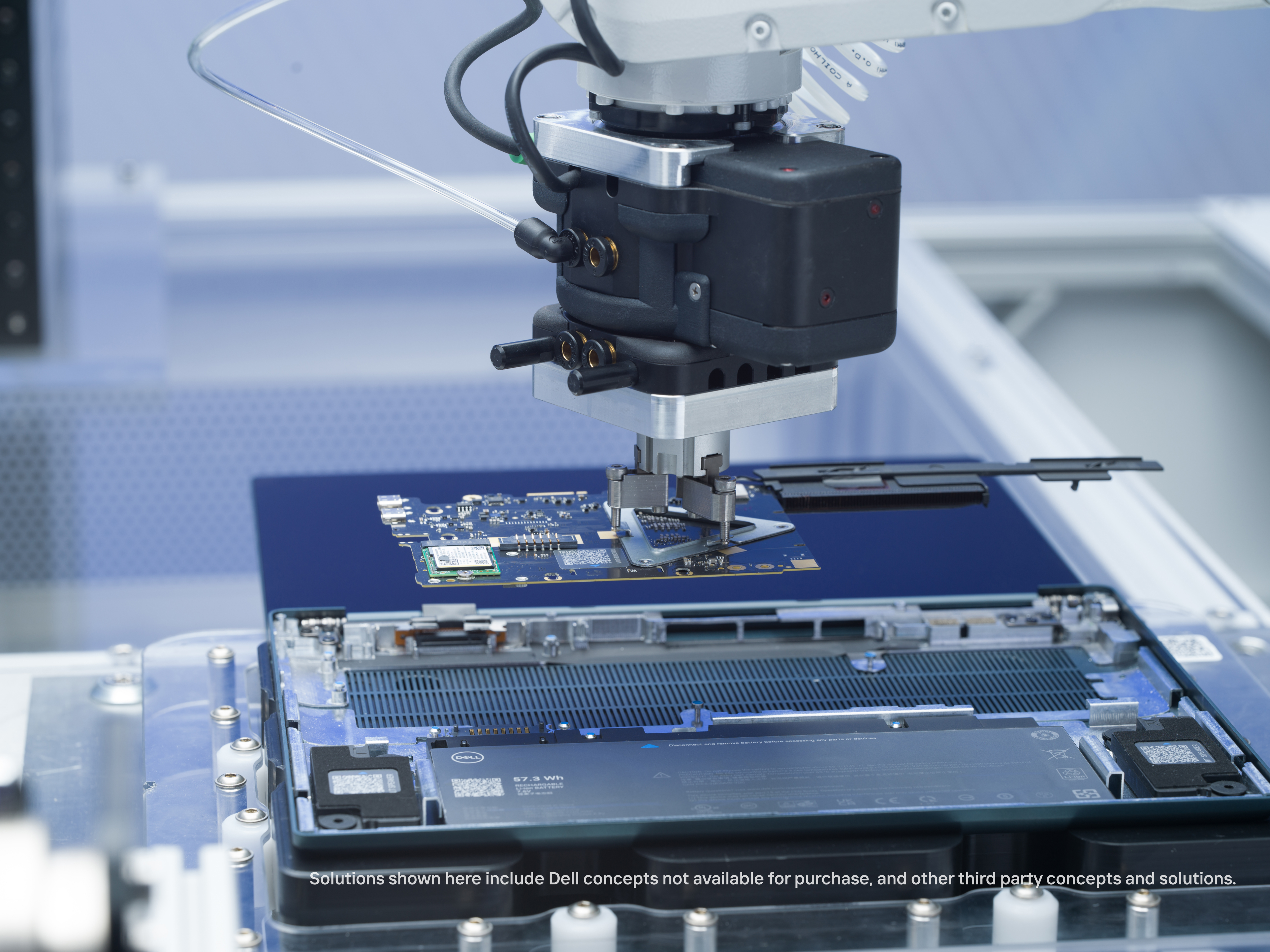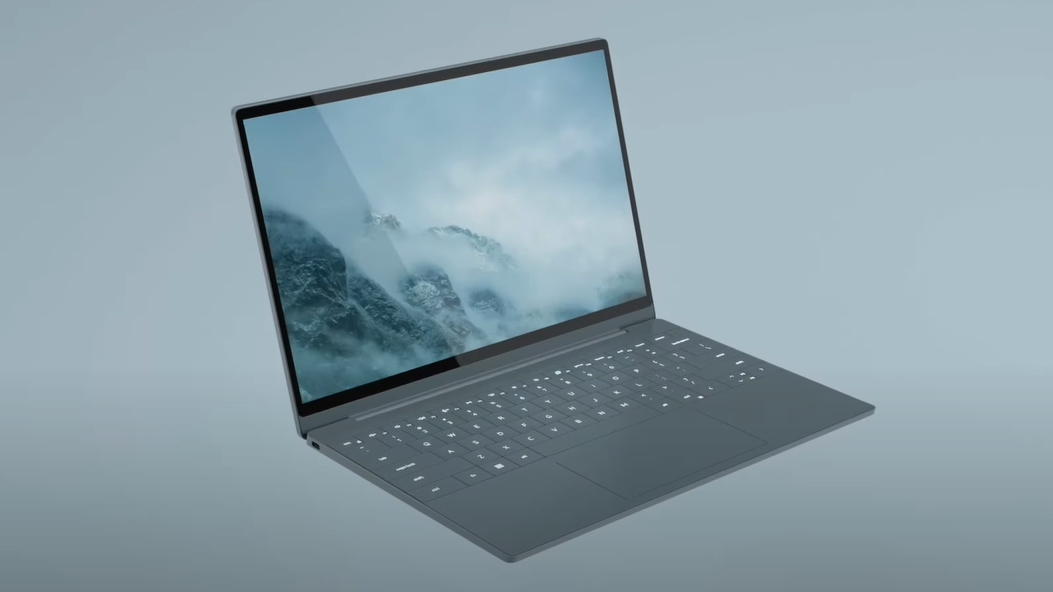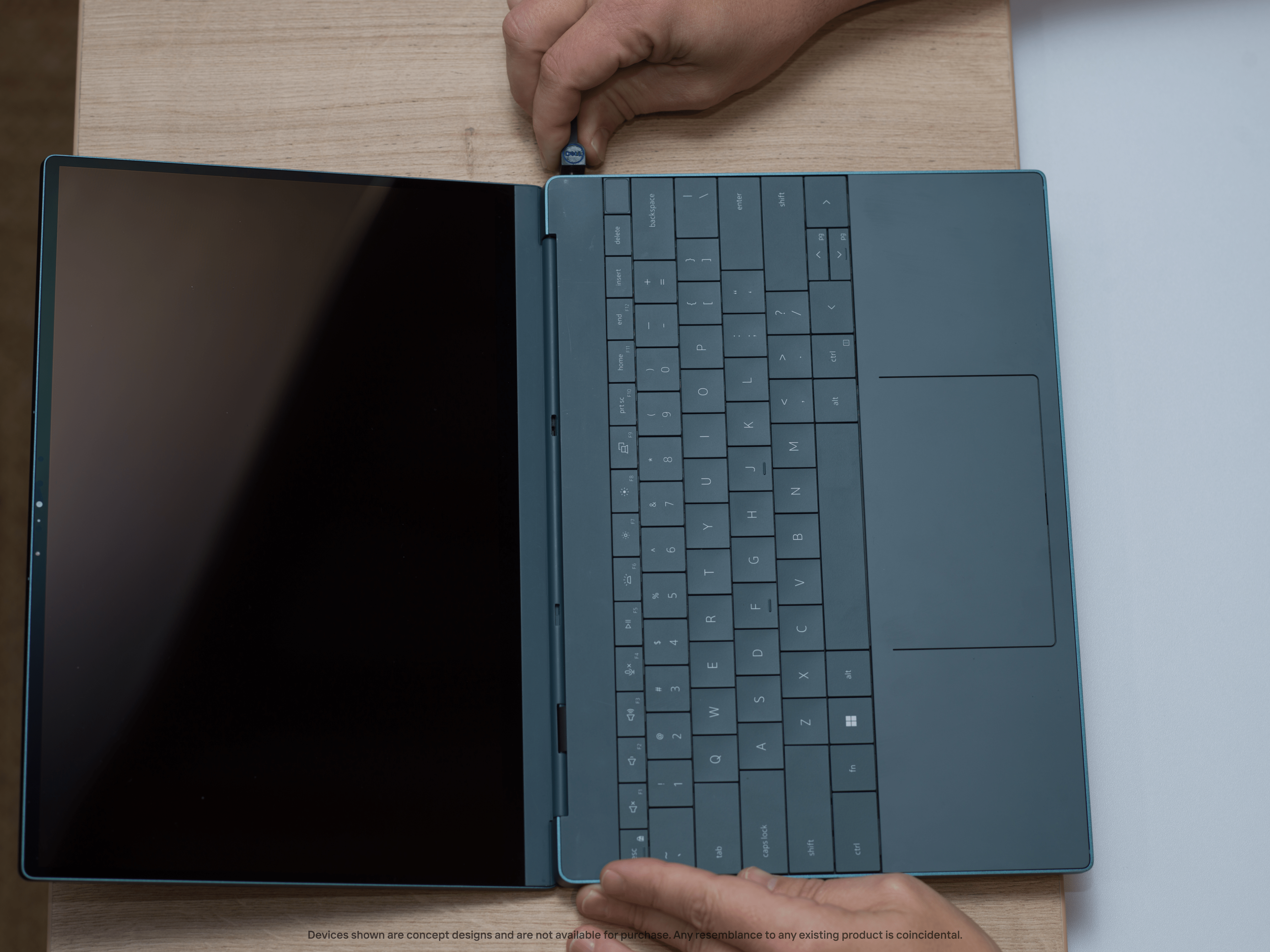Dell’s modular Concept Luna is a mainstream Framework Laptop — but is it just greenwashing?
It's not easy being green

Sign up to receive The Snapshot, a free special dispatch from Laptop Mag, in your inbox.
You are now subscribed
Your newsletter sign-up was successful
Dell’s Concept Luna is a glimpse at the fully modular, repairable, and upgradeable laptops of the future. But are they actually a huge win for sustainability? Let’s get into it.
Ahead of CES 2023, this vision of the future is back with some progress made to what we originally saw last year. That progress is a refinement of the modular design that eliminates the need for adhesives and cables, and reduces the use of screws for an easier system to dismantle and repair.
But I'm skeptical. I’ve seen many companies make big sustainability commitments that all turn out to be greenwashing or never end up launching. So, what is Concept Luna, and how confident should we be about it?
On sustainable paper, it sounds great!
Globally, 57 million tons of electronics are thrown out every year. It’s a massive problem that needs to be addressed with proper sustainable practices and a right to repair. Concept Luna is Dell’s big swing at this problem — following in Framework’s footsteps with a modular system that can be taken apart in a minute or two.
This means every component can be repaired or upgraded, as users can keep the same shell and add to it over time. Beyond this, Dell has also commissioned a micro-factory to guide the design team, which means a robot could take apart the laptop in seconds.
The next big update to Luna is the telemetry software that is able to perform a health check on specific components and tell you what you need to repair or replace. For example, if you use yours with a monitor, keyboard, and mouse most of the time, then chances are you won’t need to touch the laptop’s display, keyboard, or touchpad for a long time, whereas the motherboard is still going to get a workout — thus helping further to eliminate e-waste.
As for when we will see this in the open, Dell hasn’t committed to any plans for a public release and is sticking firmly to this being “just a concept.” In fact, the closest the company got to saying we may get this level of modularity is to say “it is a long-term vision for how we achieve an even greater business and societal impact through circular design practices.” A lot of words there to say “you won’t see it for a while.”
Sign up to receive The Snapshot, a free special dispatch from Laptop Mag, in your inbox.
What’s the problem?
Disassembly and modularity are a helluva impressive achievement and a huge check in the box of sustainability. But beyond the obvious problem here that it’s not available yet with no concrete plans to launch (which is, in itself, kind of a greenwash), upgradability is limited to the components that Dell itself offers. You can see this in effect with each of the parts having QR codes on them.
One of the best things about PC ownership is the fact you can pick and choose the components you use to save yourself some money. With this proprietary approach, you’re stuck in Dell’s economy, which means you may end up paying more than if you could get those same components elsewhere.
Fixing electronics rather than throwing them away is an important mission for us all to strive for, and the more companies cater to it, the better. But your own personal economy is also important, and some companies have been guilty of adding what I call a “green price premium” to their gadgets.
For example, at $1,013, the Framework 12th Gen base model laptop packs an Intel Core i5-1240P, 8GB of DDR4 RAM, and a 256GB SSD. For less than that, you could get several options:
- An M2 MacBook Air
- A HP Spectre 2-in-1 with 12th Gen Intel Core i7
- An Acer Nitro 5 with 12th Gen Intel Core i5 and RTX 3050 Ti GPU
These were the first three more cost-effective laptops I found after a simple, 30-second search, but look further and you’ll find hundreds of systems that make your money go further.
I understand that part of what you’re paying is for the modularity, but until the price to performance is a little closer at least (or the same at best), that sustainability premium is not going to sway people. And I fear Dell’s pricing may go down this same route.
Outlook
I hope to be proven wrong. I hope that Dell launches an XPS 13 Luna Edition that encapsulates everything I spoke about above — replaceable components from an open market and pricing that makes sense in the broader scope of the laptop market.
And as a gamer at heart, I hope this is expanded to the Alienware lineup of systems, too. Being able to replace GPUs with relative ease would be a killer feature for any high-power system.
But until then (if "then" even comes), all I can do is keep my fingers crossed that there comes a future of positive change towards sustainability, which doesn’t deter people by hitting their wallets harder than it should.

Jason brought a decade of tech and gaming journalism experience to his role as a writer at Laptop Mag, and he is now the Managing Editor of Computing at Tom's Guide. He takes a particular interest in writing articles and creating videos about laptops, headphones and games. He has previously written for Kotaku, Stuff and BBC Science Focus. In his spare time, you'll find Jason looking for good dogs to pet or thinking about eating pizza if he isn't already.



